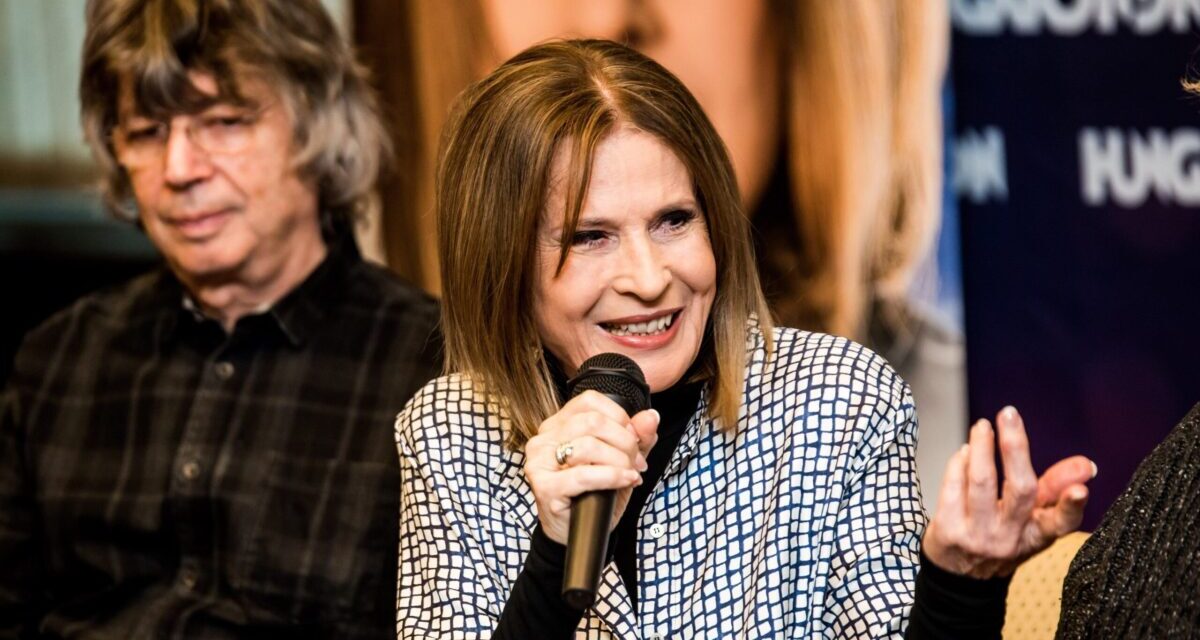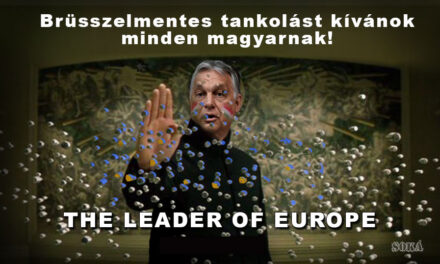Flavors and slaps... Or Elijahs and slaps? The once great, now pathetic characters of a great generation are somehow trying to draw attention to themselves. Maybe there are still people who pay attention to them, I'm not really interested in them anymore. Written by György Tóth Jr.
We have a János Bródy, who forever entered his name in the Great Generation's book, and we have a Zsuzsa Koncz, whom we once admired, in whom we thought we could find the icon of rebellious youth. To err is human, right? We weren't wrong then, we'll side with them now if we believe they're still who they once were.
After the regime change, many things became clear. Also about Zsuzsika, about whom we learned that after Jelbeszéd record was "banned" in 1973 (50,000 copies were sold, I have a copy too), she was afraid that she would not be able to make more records. And he was right, because he could only do ten, and in 1983 Jelbeszéd was also republished.
What could Zsuzska be afraid of when she had a father-in-law like the infamous Iván Boldizsár? This is the legend he created, which he used to strengthen the image of the "rebellious youth" in us. He had a picture to go with it.
In addition, Zsuzsika has repeatedly proven that she is loyal to the communist regime, it is enough if we only think of her speech delivered in 1982, at the meeting of the National Peace Council. So poor Zsuzsi was really persecuted by the system. He was constantly being forced to make records. It must have been terrible.
After that, of course, it is not so surprising that Zsuzsa Koncz did not like the regime change, which she expressed not only by defaming the Antall government by joining the SZDSZ, but also with her songs, whose authors we saw there - and we can still see them today – that János Bródy, who was indeed observed, banned, and dragged away by the Kádár regime. In his case, one could still understand why he supported the SZDSZ, but no way, what could he have to do with the previous regime's benefactor, our Zsuzská?
Make no mistake, I always tried to separate the artist from his political affiliation, which of course did not always succeed, but I tried. If the artist left it.
Koncz and Bródy, on the other hand, do not let it go, as their hatred towards the Christian-conservative side is also reflected in their songs. Where is Bródy, who rebelled against the communists? And what has become of the once beloved Koncz?
All of this came to mind because the "big duo" made a replica of the Jelbeszéd album created 50 years ago, somewhat fueled by the hatred of today's system, creating a Jelbeszéd 2.0 ... well, let's call it for lack of a better name. But what a difference, dear God!
This Sok.nulla work is included on the anniversary album alongside songs such as " Kertész leszek ", " Ha én rózsa wolcek " or " What should a little girl do? " Well, this should not have been done in any way. Not only because of the "transparent" but rather clearly hostile lyrics, because we haven't heard anything else from Bródy for a long time, but because of the characterless music, unworthy of the quality of the original album. Pathetically uninteresting, absolutely characterless music. Bródy, who once composed still-beaten texts, described the rather shallow composition as follows:
"I thought of writing a song that indicates the heritage in its music and undertakes to preserve the best traditions, but is still a new song that reflects on 50 years ago."
Well, it didn't work. I find no trace of "heritage" in the music and no trace of honesty in the lyrics. The thoughts attached to it are no less, because Bródy even added:
"Something tells me this song won't be a favorite of the current censors anyway."
For whom, Jancsika? It would be good if you noticed that today the censors are lurking on your pages, say on Facebook or in the opposition press, where certain events simply do not appear, so that your dumbed-down camps are not disturbed by reality. Of course, your censors have no problem with hateful compositions, which is incidentally correct.
We are able to endure even your reality. Why doesn't it work the other way around?
Alexandre Dumas wrote in his timeless adventure novel Vicomte Bragellone Well, Zsuzsa and Jancsi, I recommend this motto for you too, only slightly adjusted, while: Where else am I sinking?
Featured image: MTI Photo / Zoltán Balogh












